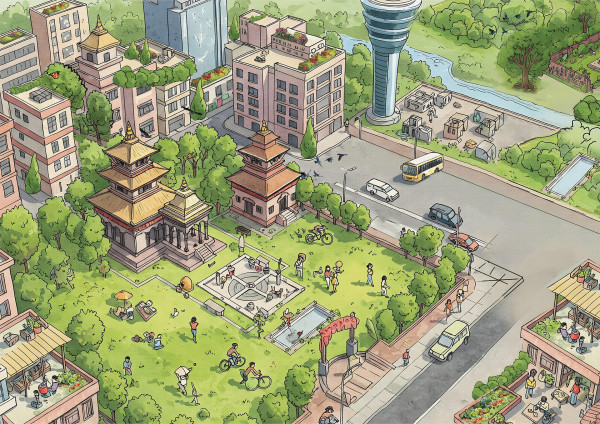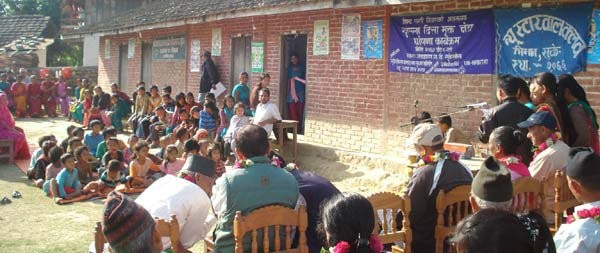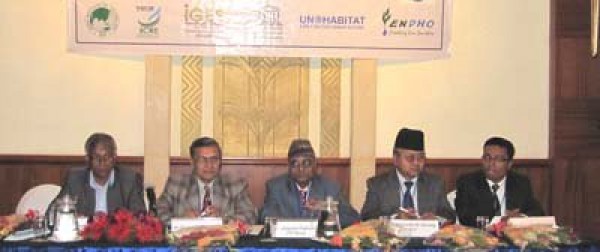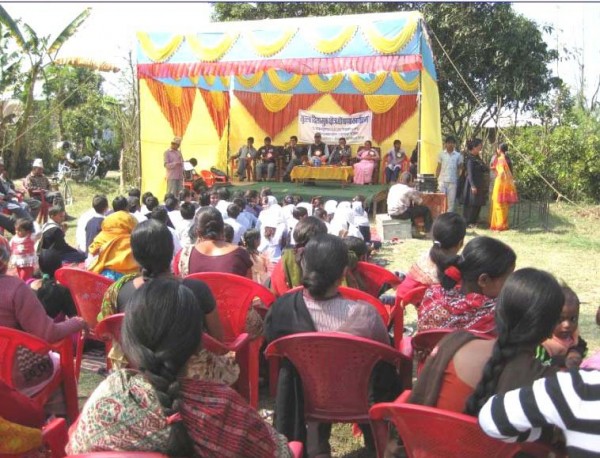Cooking gas from waste
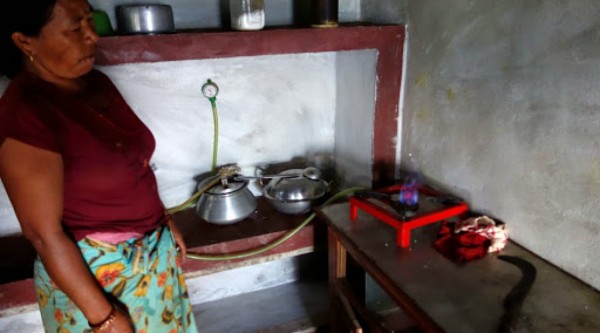
Kathmandu 12 Oct 2008: Cooking gas plants that generate gas from bio-degradable household waste would be useful in addressing the current fuel crisis and waste disposal problem in the capital. But the technology has largely been ignored. The technology, developed by Phuxin Citizen in China, was introduced in Nepal by a group of engineers some three years ago,according to Prof Dr. Jagannath Shrestha of Center for Energy Studies at Institute of Engineering of Tribhuvan University (CES/IoE/TU) which has tested the technology for over six months. The experiment showed the technology to be cost-effective."Authorities are busy playing blame game and politics on degradable waste but not initiating any model to solve the problem," said Shrestha. It costs only Rs. 80,000 to install a 10 feet by 10 feet plant which can generate enough cooking gas to fulfill the needs of a family with 5 to 7 members from only one kg waste in a day. Since it comes with a 25-year guarantee one can recover the cost involved in just three years, says Shrestha. According to CES/IoE/TU, over last the three years, more than 100 individuals from the bureaucracy, private and community institutions, including 12 municipalities, have been given practical training in installing the plant at Kalimati Vegetable and Fruits Market (KVFM) by feeding it the waste generated in the area. The Global Environment Facility (GEF) Small Grants Programs of the United Nations Development Program, and UN-Habitat were also involved in the project. In its initial phase, some two-and-half years back, a feasibility study was also conducted by the government and the study showed that this was a practicable option for urban areas. "We have not been able to take any steps ourselves for its promotion yet," said Sammir Thapa, renewable energy support programme coordinator at the Alternative Energy Promotion Centre (AEPC), the government body responsible for promoting alternative sources of energy. "But now we have already made a simple understanding to subsidize the promoters of such plants. Soon we will work on it." "Although, over 70 percent waste in the metropolis areas is bio-degradable, we lacked the space," said Rabin Man Shrestha, chief of the environment department at Kathmandu Metropolitan City (KMC). "But now we are planning to install a model plant in our premises so that metropolis dwellers can see it and install such plants in their homes." "Managing the disposal of waste used to be such a headache for us but now there is some relief," said Binaya Shrestha, coordinator of the plant installation at KVFM. "As we generate nearly 100 tons of wastes a day, if anybody installs such a plant and needs waste, we will be happy to deliver for free."


